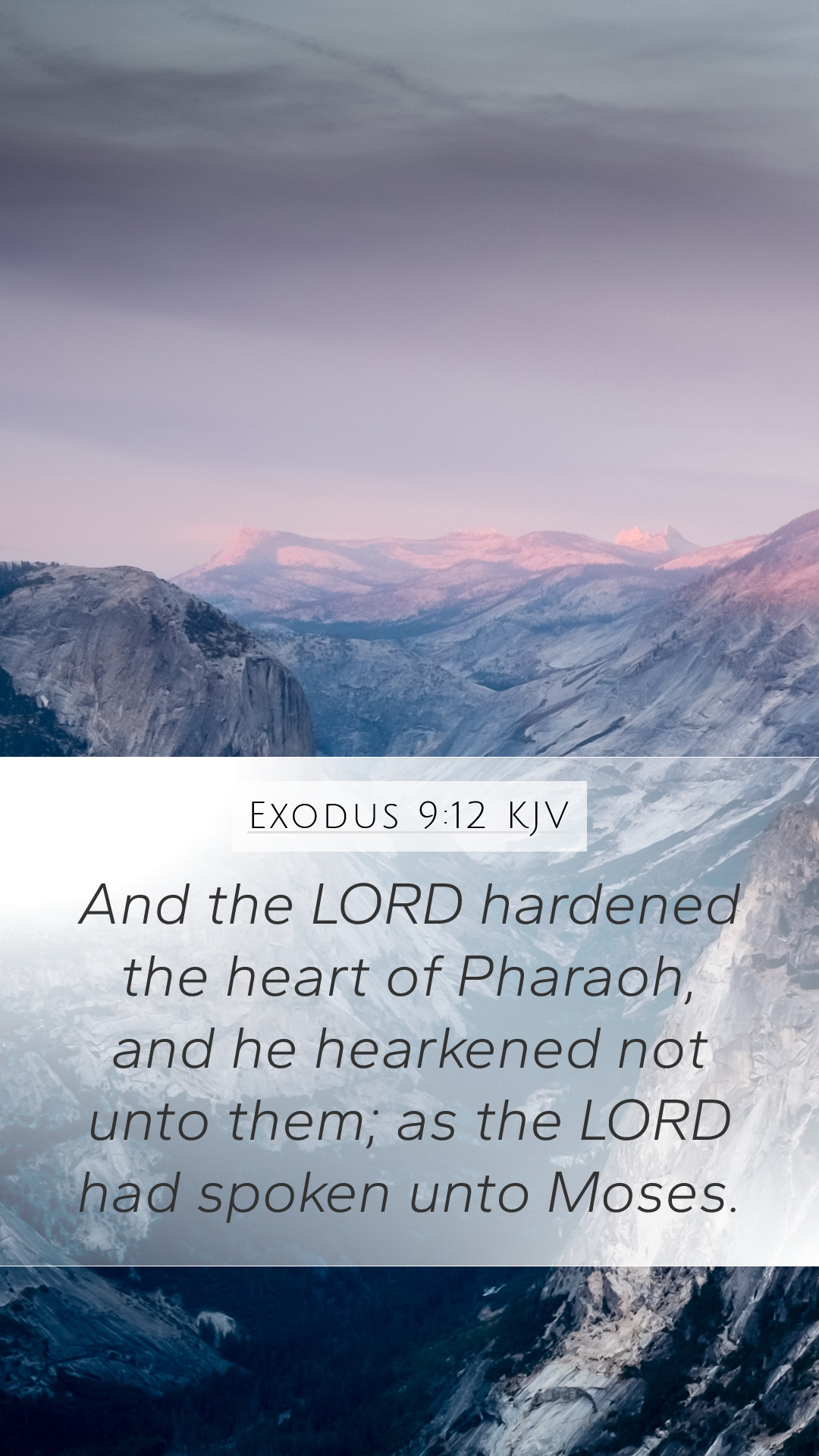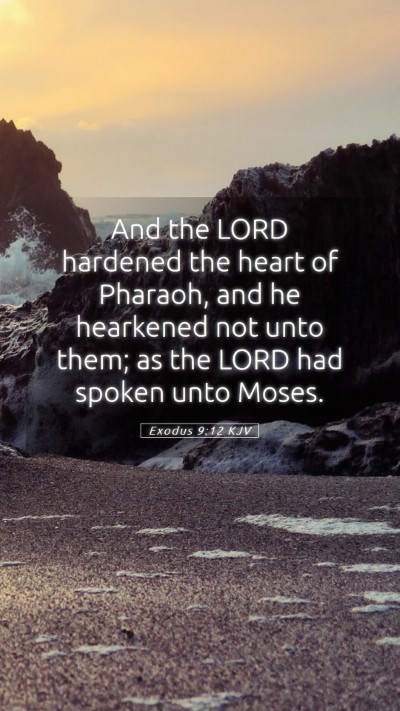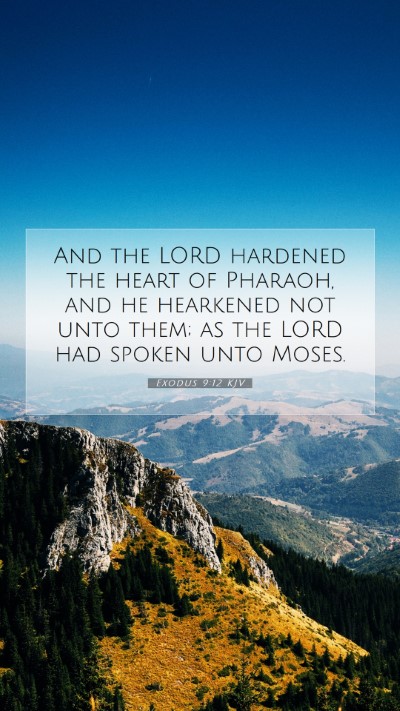Bible Verse Commentary: Exodus 9:12
The verse Exodus 9:12 states, "And the Lord hardened the heart of Pharaoh, and he hearkened not unto them; as the Lord had spoken unto Moses." This verse marks a significant moment in the narrative of Moses and Pharaoh, especially during the plagues of Egypt. Here, we delve into the meanings and interpretations of this verse as provided by Matthew Henry, Albert Barnes, and Adam Clarke.
Contextual Analysis
This verse is situated within the broader story of the Exodus, where God sends plagues upon Egypt to compel Pharaoh to release the Israelites from slavery. The hardening of Pharaoh’s heart is a recurring theme throughout the narrative, emphasizing divine sovereignty and the interplay of free will and God’s purpose.
Commentary Insights
-
Matthew Henry:
Henry emphasizes that God’s hardening of Pharaoh’s heart was both a judgment and a fulfillment of His plan. He suggests that Pharaoh’s resistance demonstrates God’s power and glory, as each plague serves as a demonstration of the futility of Egyptian gods.
-
Albert Barnes:
Barnes observes that the hardening was a divine action allowing Pharaoh to persist in his rebellion. This act reiterates the themes of divine justice and the consequences of resisting God’s will. He indicates that Pharaoh’s hardened heart ultimately serves to fulfill God's promise to the Israelites.
-
Adam Clarke:
Clarke interprets the hardening as a means by which God sets the stage for His people’s deliverance. He discusses the moral implications of God hardening hearts, suggesting that it showcases God’s authority over human decisions and inclinations while also fulfilling prophetic declarations.
Theological Implications
The hardening of Pharaoh's heart raises profound theological questions about free will and divine sovereignty. It suggests a dynamic relationship where human choices intersect with God's overarching plans.
Understanding Divine Sovereignty
Some Bible scholars suggest that this event illustrates the doctrine of divine sovereignty—that God has the power to influence human hearts and decisions. This has both comforting and troubling aspects for believers, particularly in understanding God’s justice and mercy.
Free Will Considerations
Others argue that Pharaoh’s choice to harden his heart reflects human free will, demonstrating that while God may influence, He does not negate individual volition. This perspective highlights the importance of response to God’s call and warns against the dangers of a hardened heart.
Practical Applications
The lessons from Exodus 9:12 can be applied to modern believers as a reminder of the importance of obedience and responsiveness to God’s commands. It serves as a cautionary tale about the risks of spiritual stubbornness and the need for humility before the divine will.
Cross References
- Exodus 4:21: God's warning about hardening Pharaoh's heart.
- Exodus 7:3: God's announcement of Pharaoh's hardening and the purpose of signs.
- Romans 9:17: Paul's explanation of Pharaoh's role for God's glory.
Conclusion
In conclusion, Exodus 9:12 encapsulates the complexity of God's sovereignty and human choice. The insights drawn from esteemed commentators provide a deeper understanding of the theological and practical implications of this scripture. By studying such verses, believers can gain valuable Bible study insights into their faith journey, ensuring a more profound grasp of Scripture.


